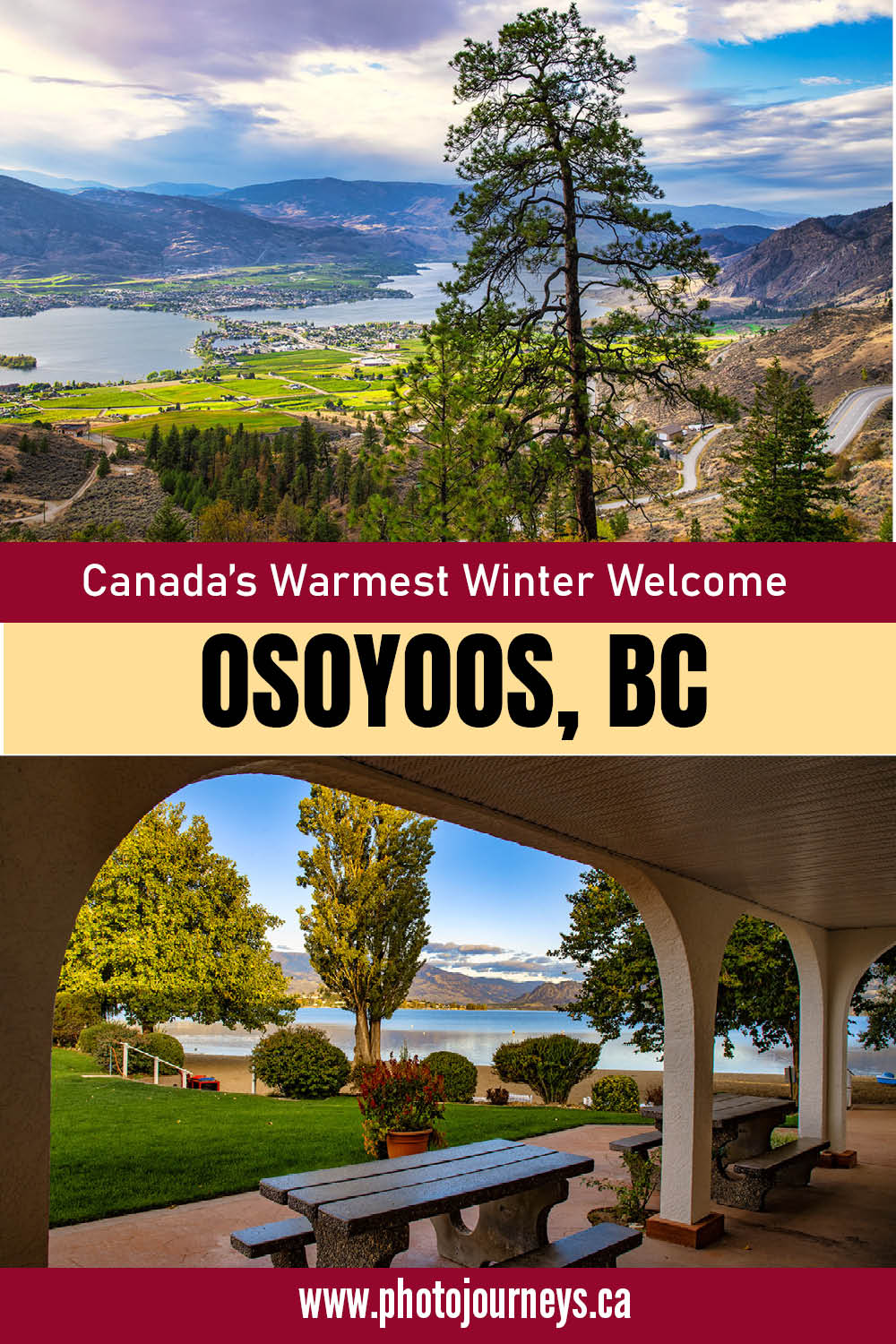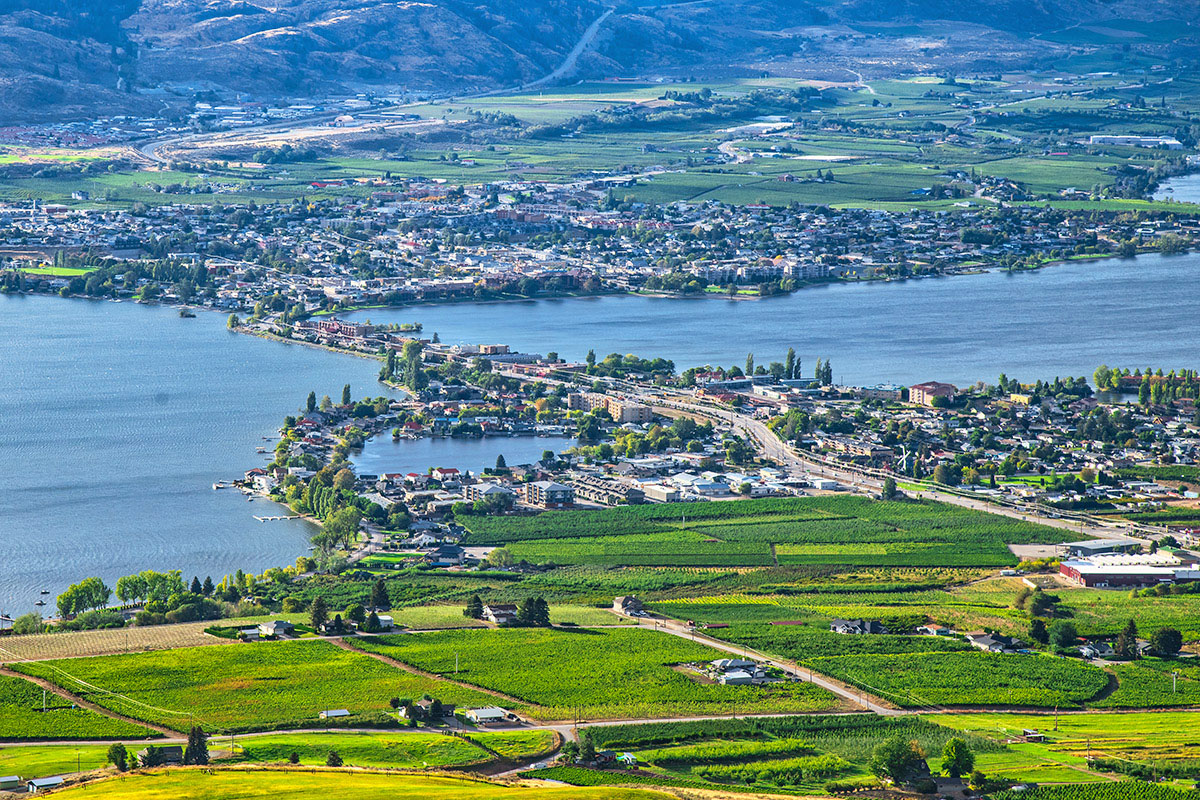

Are you looking for somewhere to experience a mild winter but are getting put off by the low value of the Canadian Loonie, the expense and hassle of out-of-country medical insurance, and the deteriorating political situation in the United States? Osoyoos, B.C. offers an attractive alternative, making it a growing destination for snowbirds.
As you drive into Osoyoos, signs at the edge of town proclaim “Canada’s Warmest Welcome.”
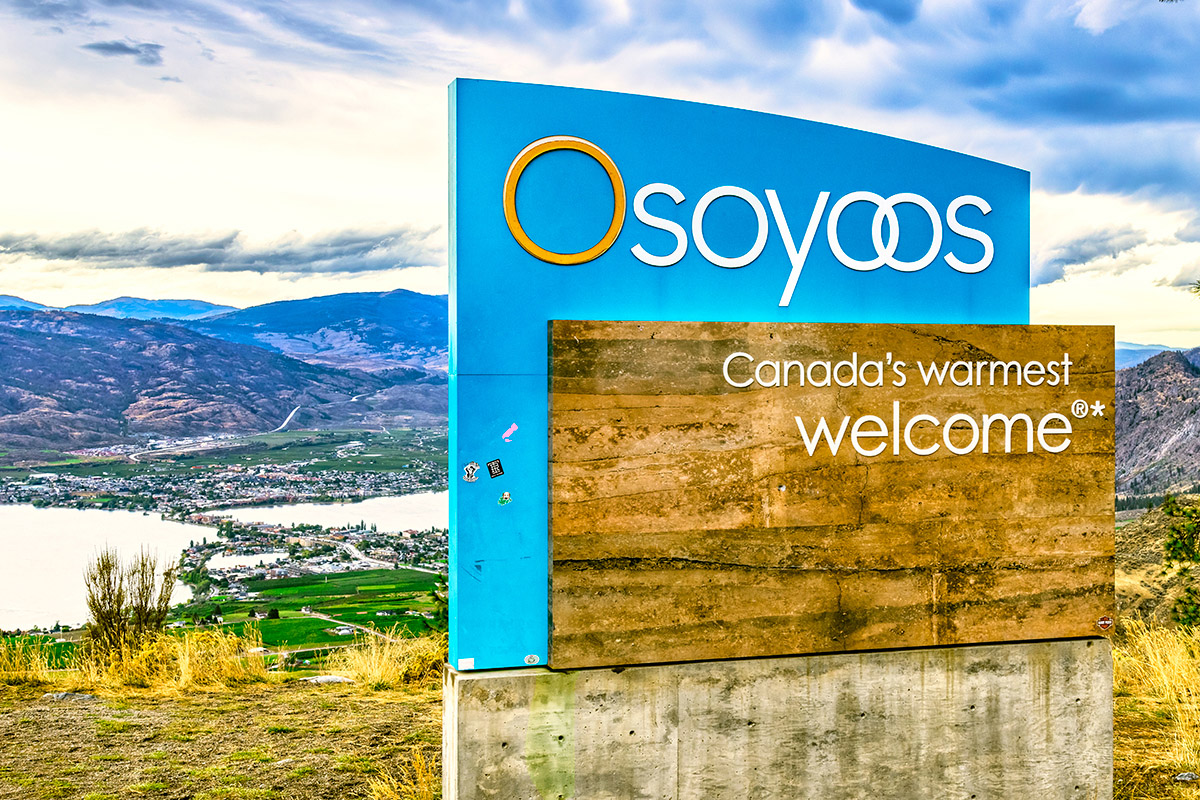
The town of 5,000 on the southern end of the Okanagan Valley boasts having the warmest annual temperature, the warmest freshwater lake and the lowest annual precipitation in Canada. Snowfall averages slightly more than five centimetres per year.
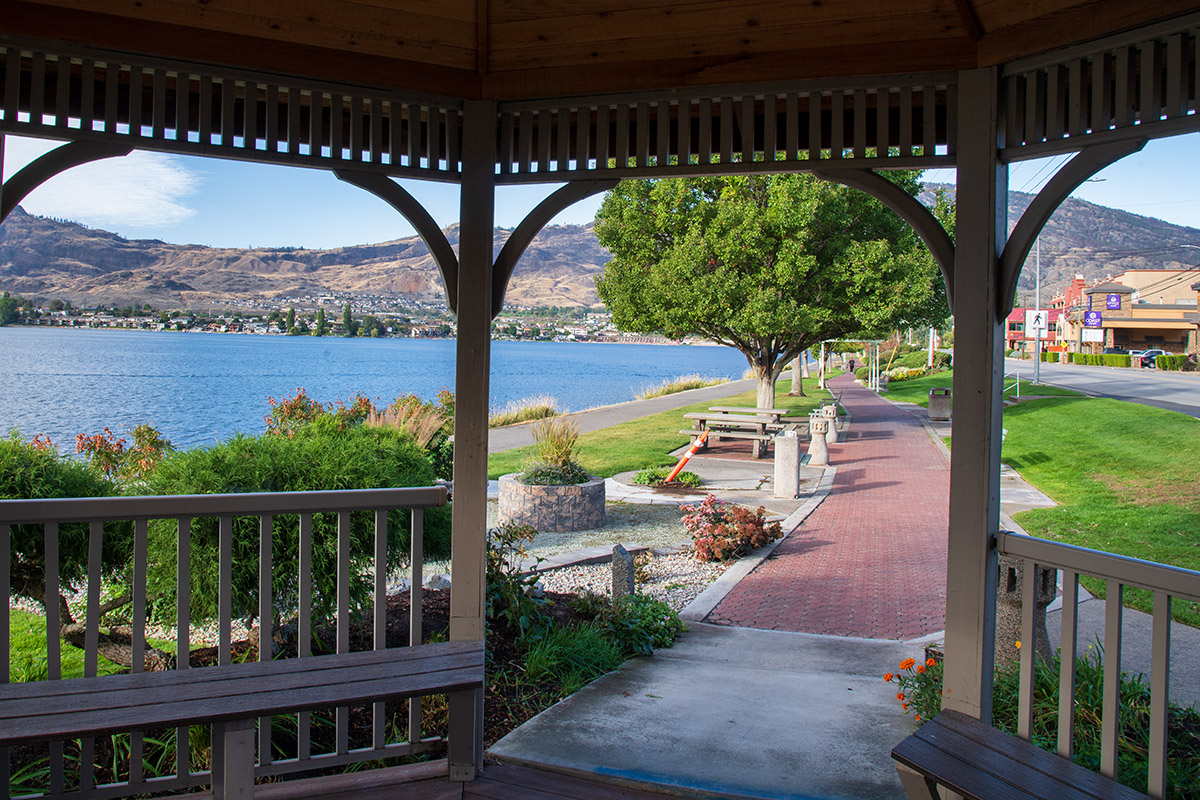
This unusual geography even has its own climate classification called the Osoyoos Arid Biotic Zone, which is desert-like.
Why visit Osoyoos
Visitors come for everything from the sandy beaches of Osoyoos Lake to golfing, hiking and biking trails, bird watching, and tasting local wines.
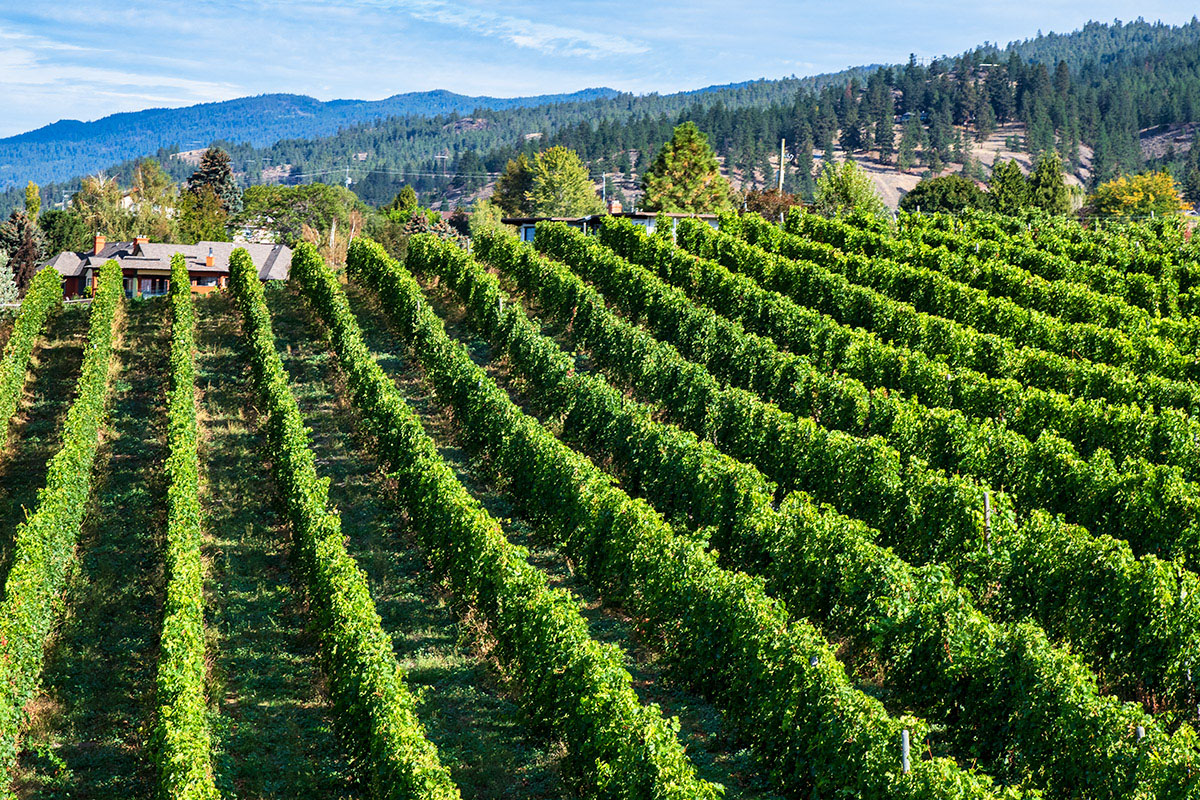
Vineyards and wineries abound. The town of Oliver, just to the north, bills itself as the Wine Capital of Canada. Many wineries have tasting rooms, and you can easily arrange guided winery tours throughout the region.
It’s also only just over a 60 km drive north to Penticton, with a similar climate and even more attractions.
A big attraction is just enjoying the spectacular mountain and valley scenery. Nothing beats the view over the town and wide valley from Anarchist Mountain right along Highway 3 as you approach from the east.
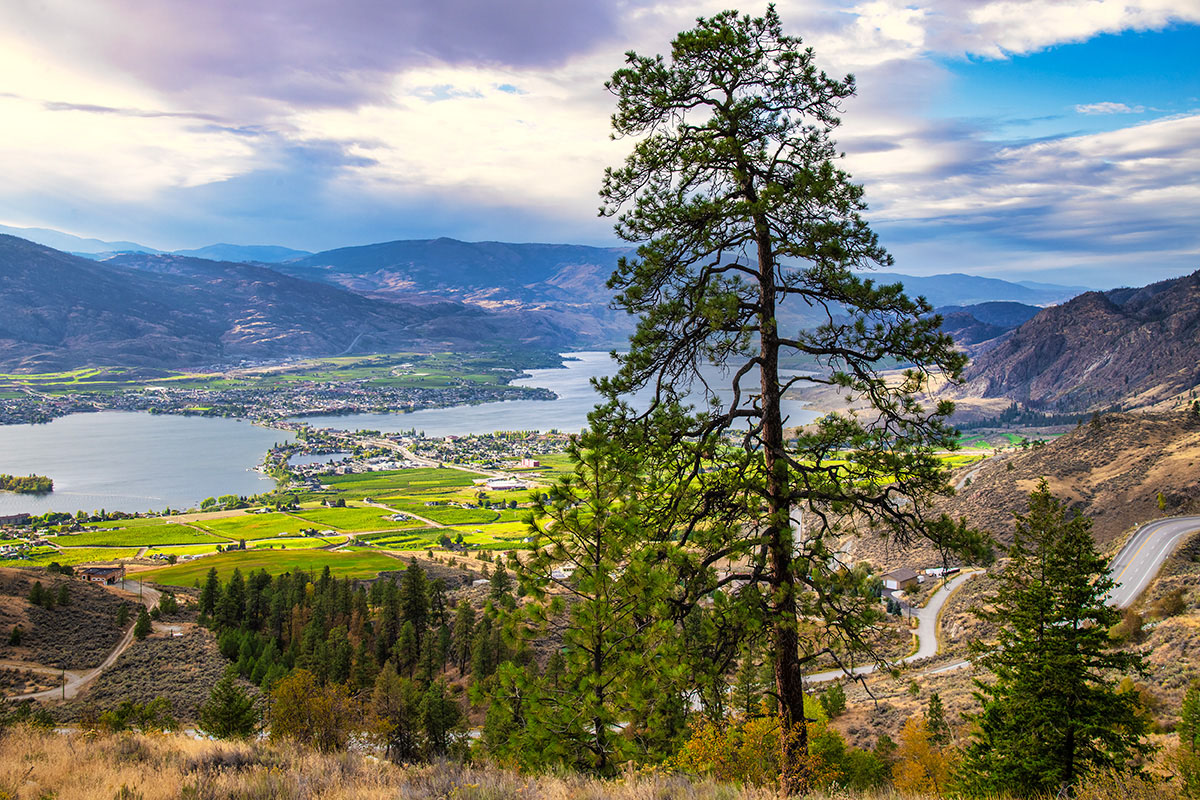
An even more distinctive viewpoint lies along Highway 3 just west of town. It looks over the otherworldly Spotted Lake with high concentrations of minerals such as calcium, sodium sulphate and magnesium sulphate. As the water evaporates in the summer heat, mineral deposits form large circles that can change colour through the season.
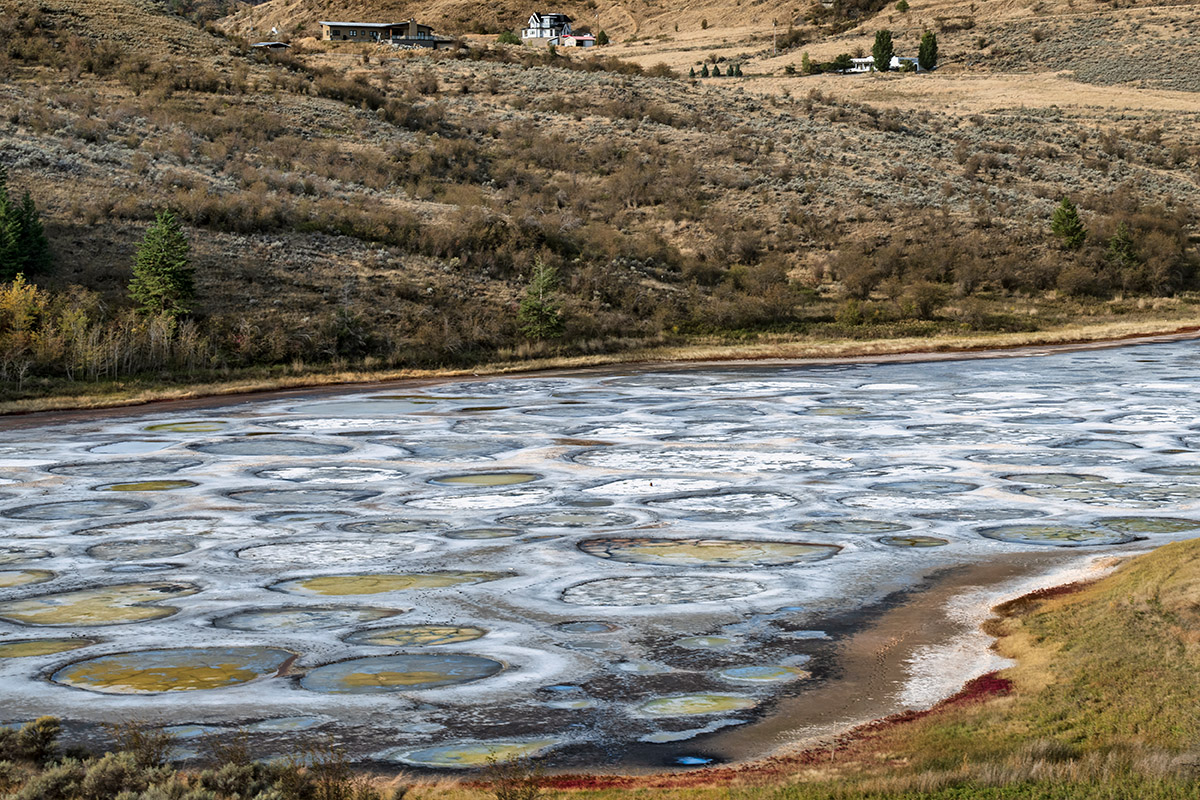
Besides being a curious natural phenomenon, the Spotted Lake has long been considered a sacred site of healing for First Nations people of the area.
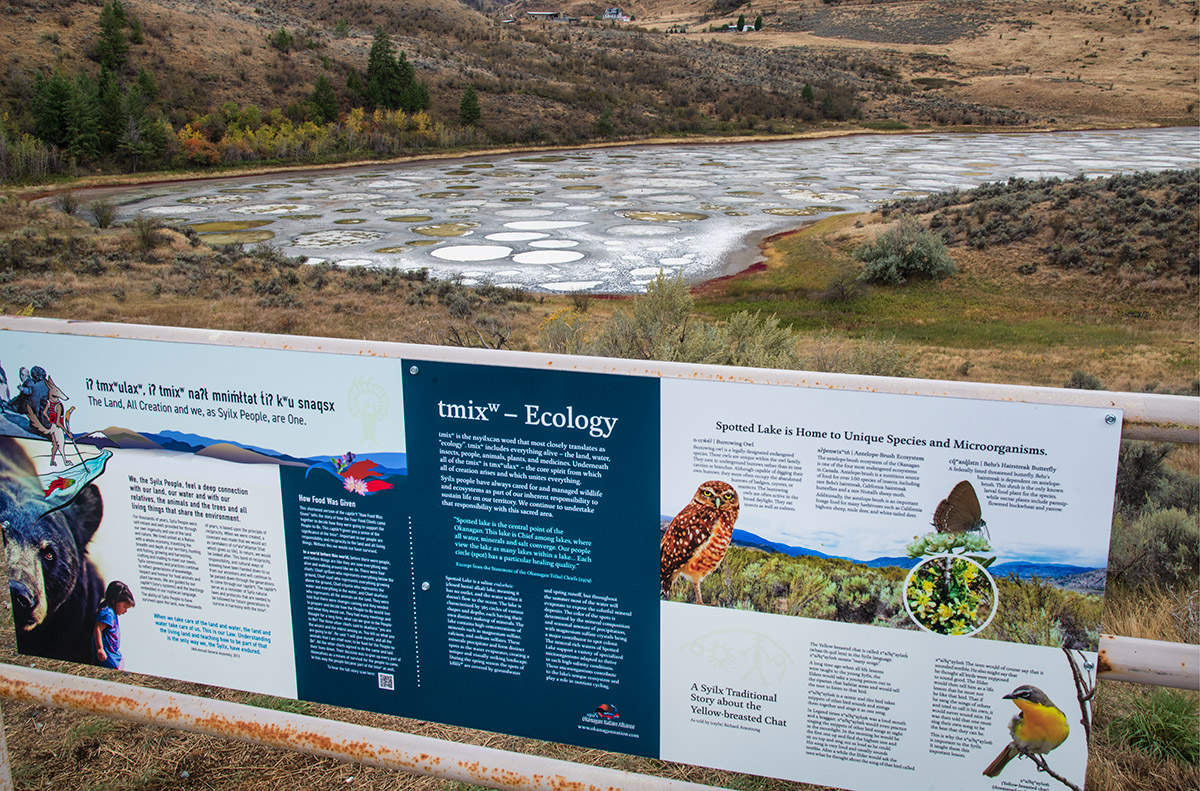
A desert-like landscape
Osoyoos is sometimes referred to as having Canada’s only true desert. To find out more, we visited the Oyosoos Desert Centre, a 67-acre nature preserve and interpretive centre with a 1.5-kilometre-long raised boardwalk winding through the fragile ecosystem. We did a guided walk with the centre’s biologist, Kaylee, who pointed out that this area has the highest concentration of rare and at-risk species in Canada.
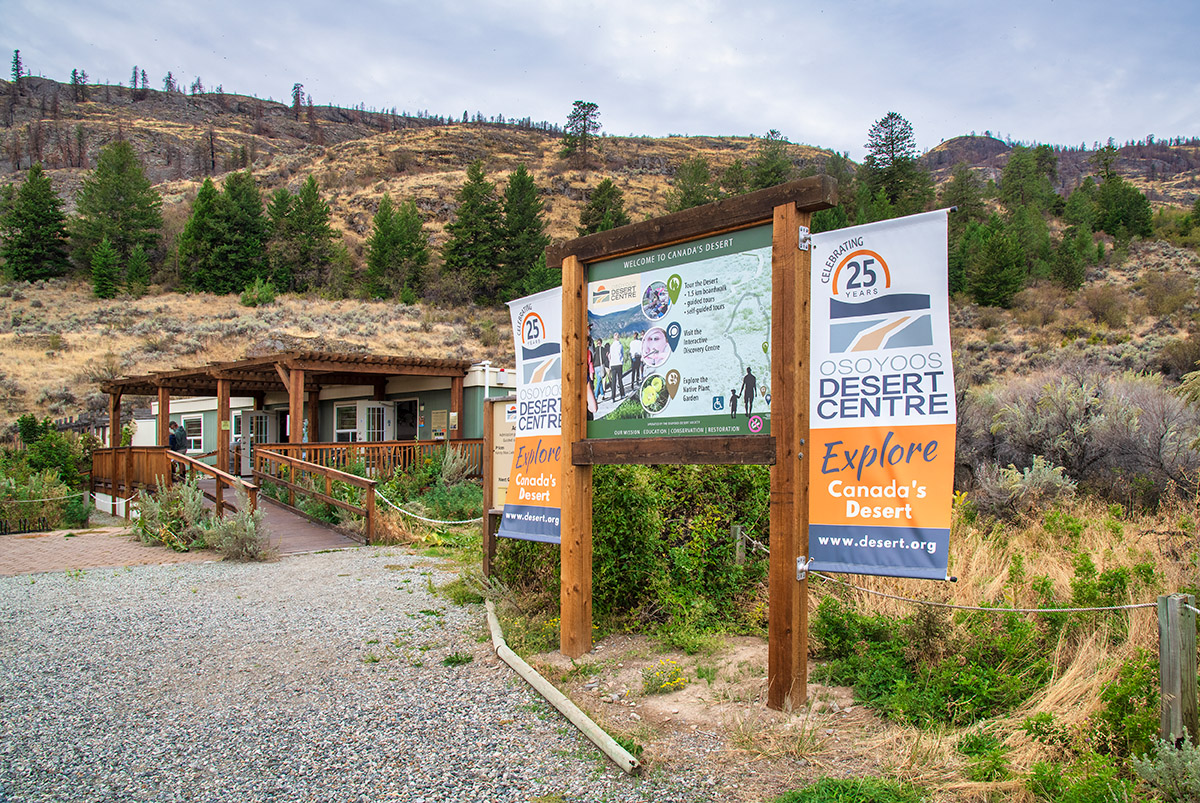
“Scientists don’t always agree on how to define a desert,” said Kaylee. “A desert gets less than 250 mm of moisture per year. We get slightly more, about 315 mm, but have high evaporation rates, sandy soil where water drains quickly and plants and animals that have adapted to the arid conditions.”
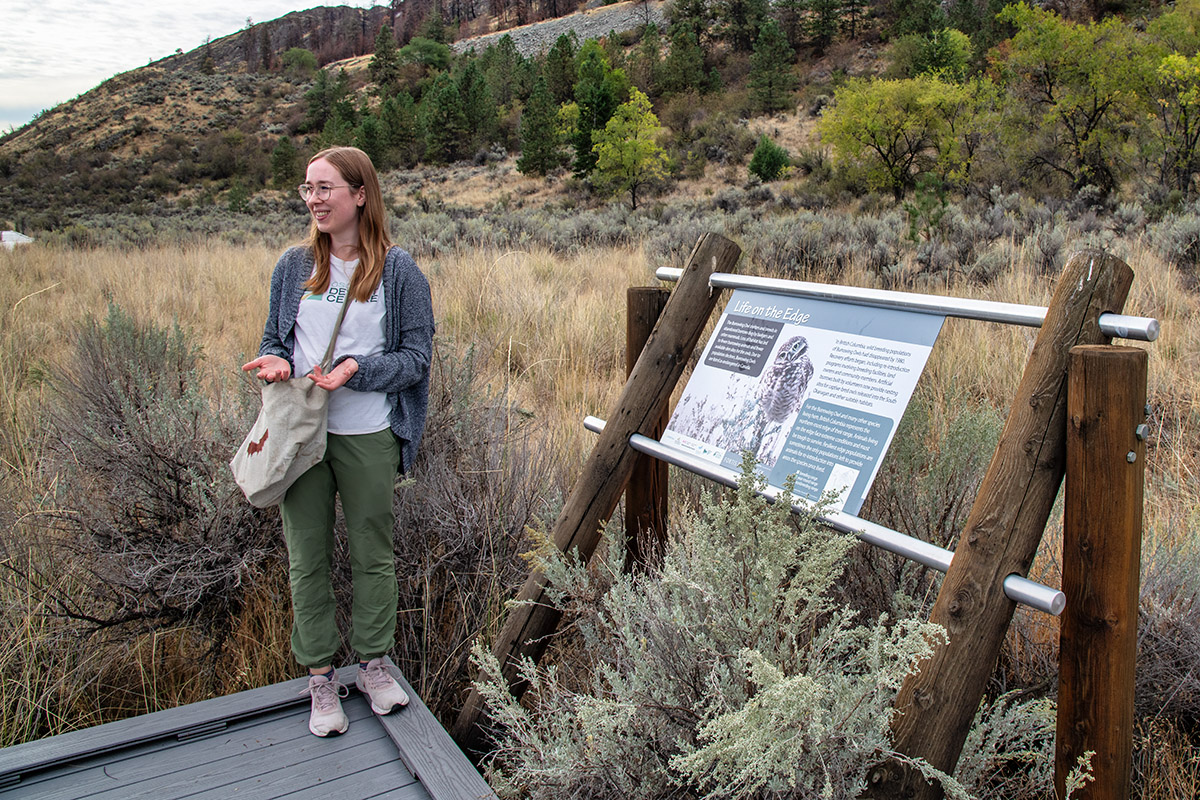
The dominant plant is antelope-brush, a distinctive scraggly shrub at the northern extent of its range here, along with sage, cactus and various bunchgrasses.
It’s one of the rarest ecosystems in Canada, occurring only in the southernmost part of the Okanagan Valley. Desert-adapted creatures such as the spadefoot toad, scorpions and western rattlesnake call this landscape home, but only a small amount remains undisturbed
On the other side of Osoyoos Lake, the Nk’Mip Desert Cultural Centre preserves a 1,600-acre expanse of natural desert. Operated by the Osoyoos Indian Band, the centre combines desert and wildlife ecology with the culture of the Indigenous people of the south Okanagan.
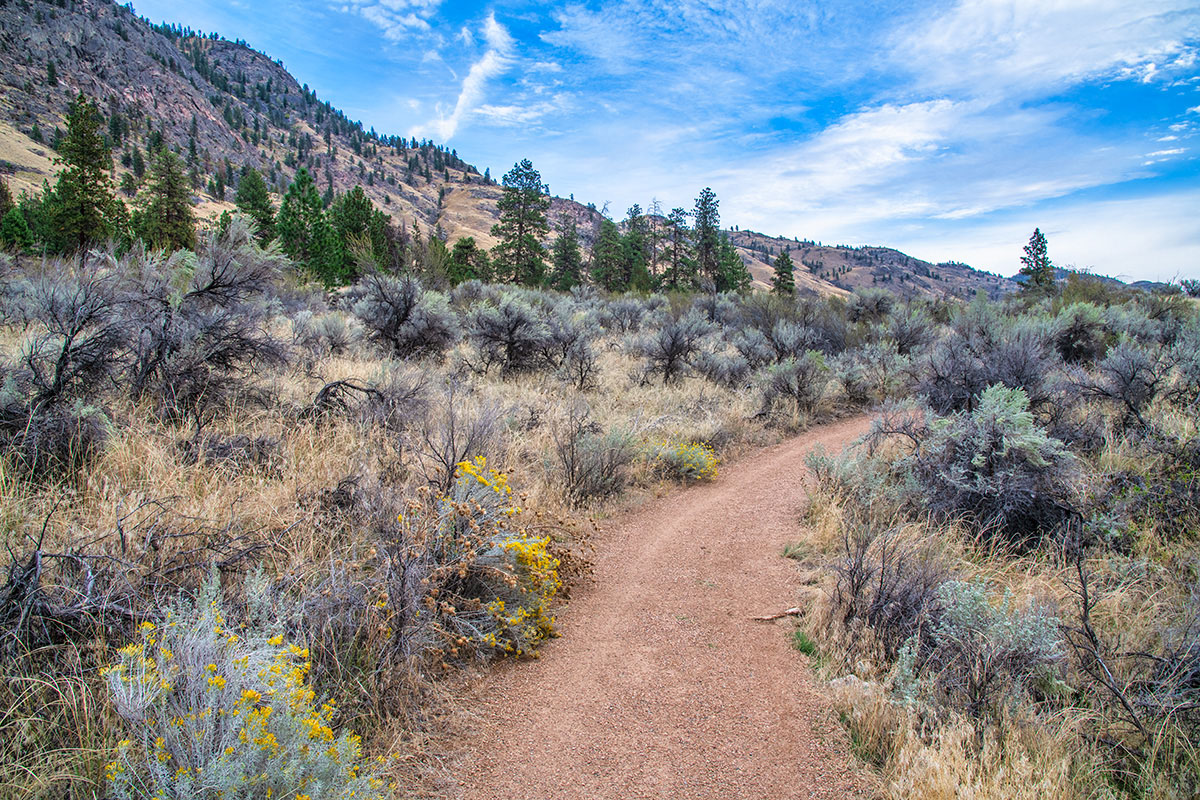
The earth-coloured visitor centre blends into the hillside and has displays and films on Nk’Mip culture and natural heritage. Outside, an easy self-guided 2-km walking trail winds through the desert environment. Signs tell you about the flora and fauna and the stories behind them, as well as the peoples’ link to the land. The highlight is a reconstructed village with distinctive metal sculptures portraying aspects of everyday life.
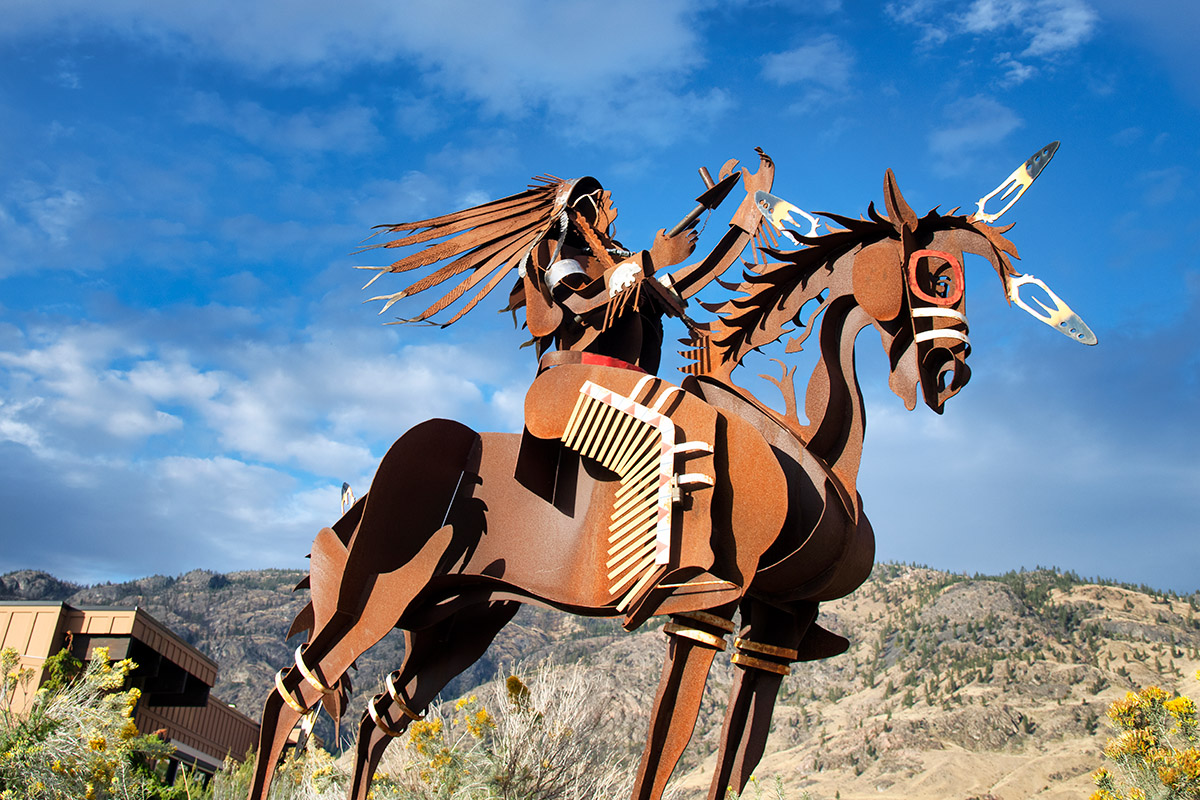
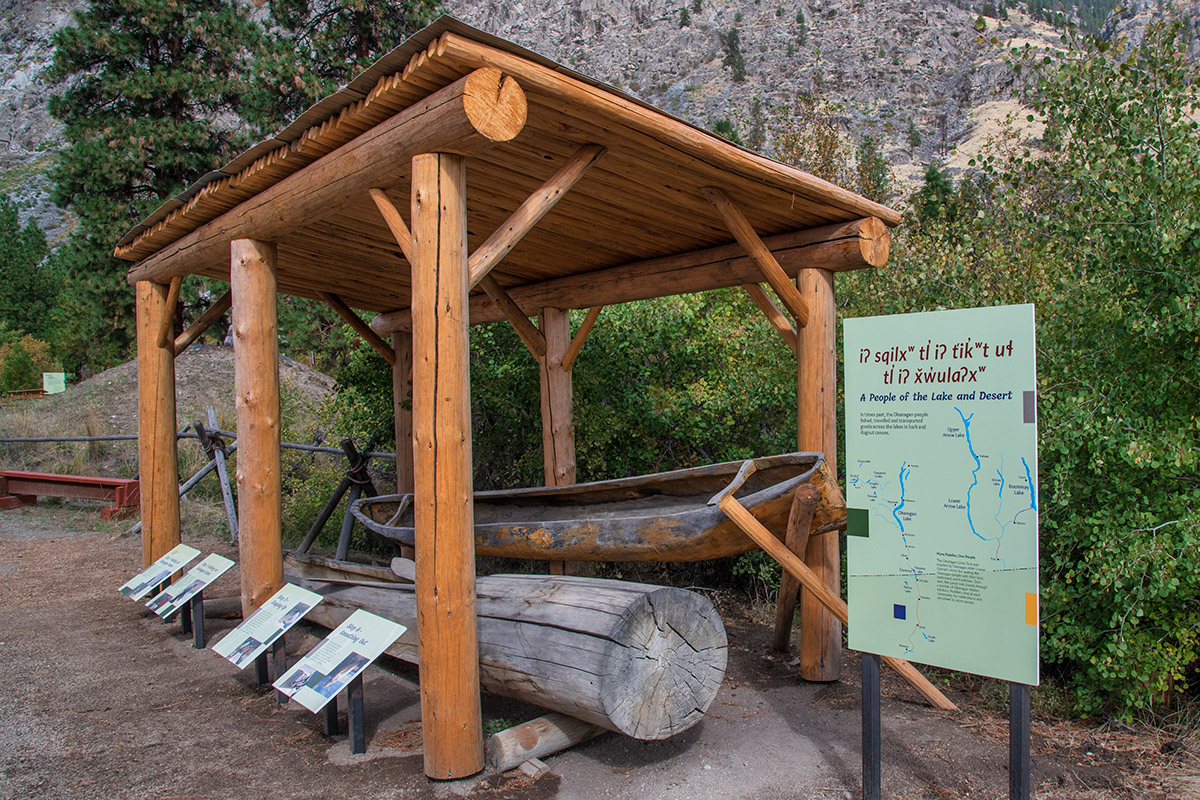
The centre is part of a larger complex with the Nk’Mip Resort featuring upscale accommodation, an RV park, golf course, winery and a fine dining restaurant with the imaginative name of The Bear, The Fish, The Root & The Berry.
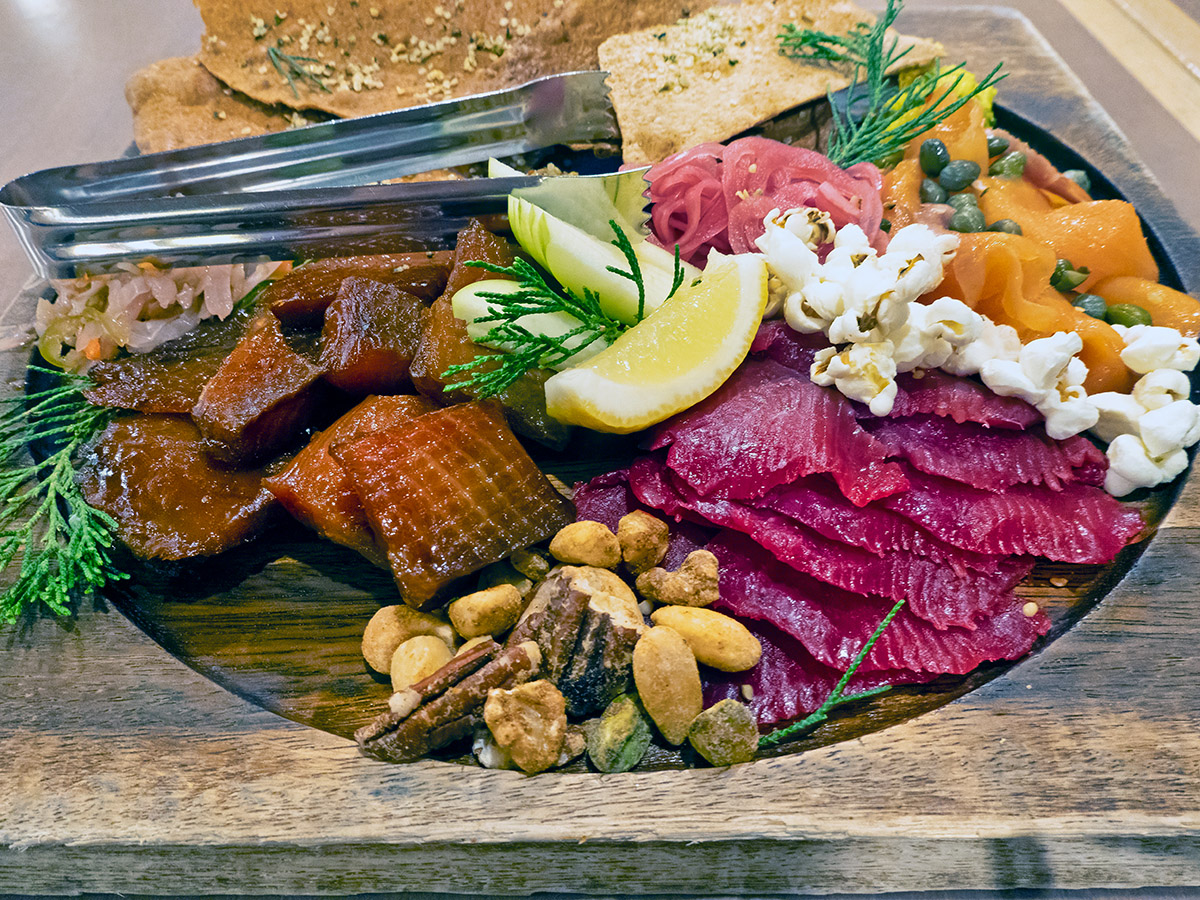
Catering to Snowbirds
For most of the year, hotels and resorts in Osoyoos operate much as expected, with guests staying anywhere from a day or two to a week or two, but come winter, some shift gears completely.
According to Tracy Wakaluk, manager of Sandy Beach Suites, their winter occupancy consists almost exclusively of snowbirds.
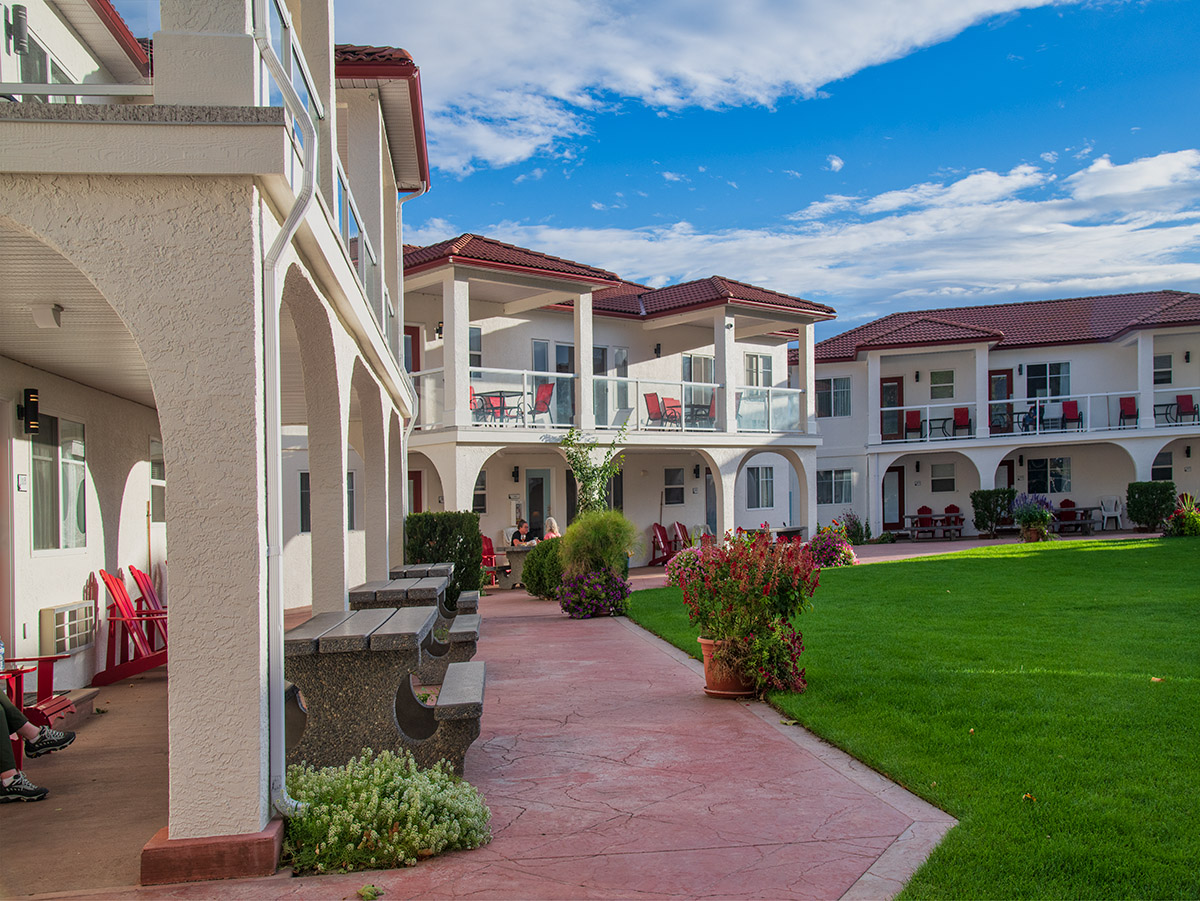
Long-stay winter rates are dramatically cheaper than paying by the night at other times of the year, and there is no tax when paying by the month. With so much demand for winter stays, Destination Osoyoos publishes a list of accommodations offering monthly winter rates and outlining their services.
Winter visitors come from across the country, especially from the Prairies and Ontario. Wakaluk has noticed that a lot of snowbirds who had previously travelled internationally are turning to Canadian destinations. The top reasons include the value of the Canadian dollar and the hassles and costs of out-of-country medical insurance.
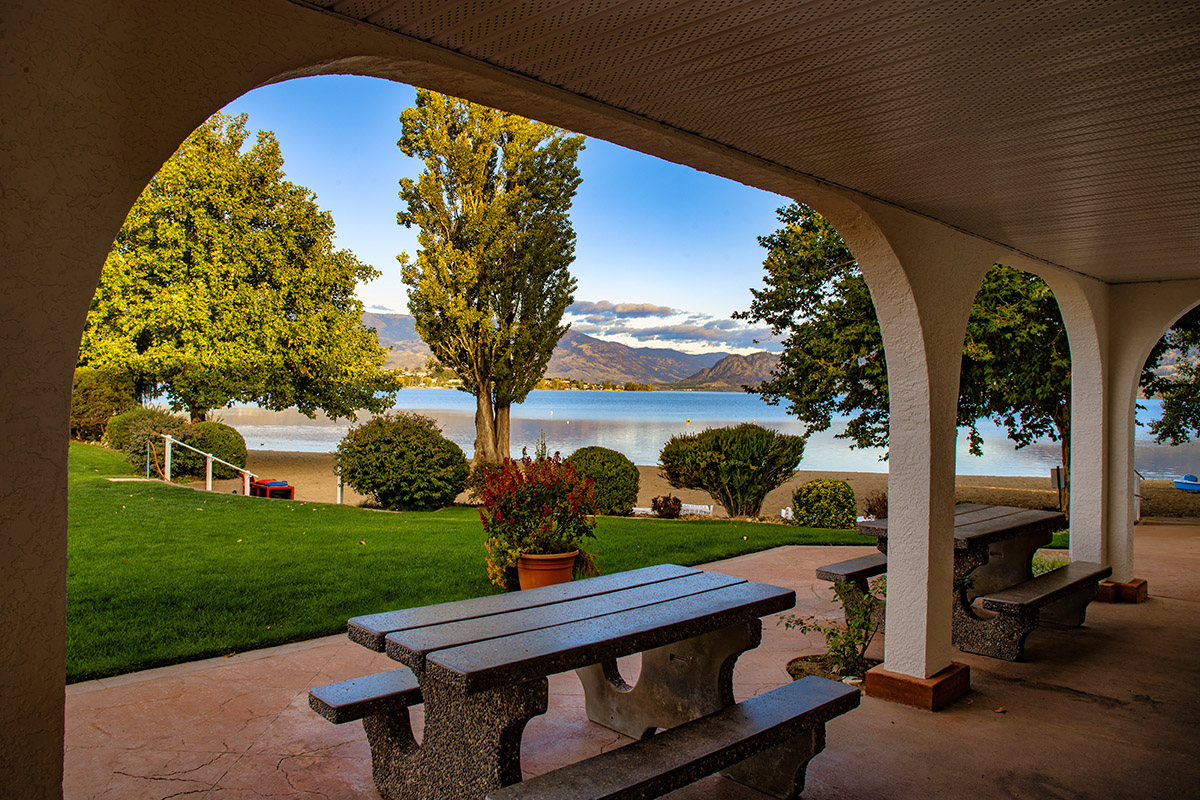
“We do get winter, but we can walk everywhere and seldom have to shovel snow,” said Wakaluk.
“Even when it does get cold, it’s almost always warmer than where our guests come from.”
Resources
- For more information on all aspects of Osoyoos , visit the Destination Osoyoos website.
- See our posting on 13 Things Not to Miss in Penticton BC


